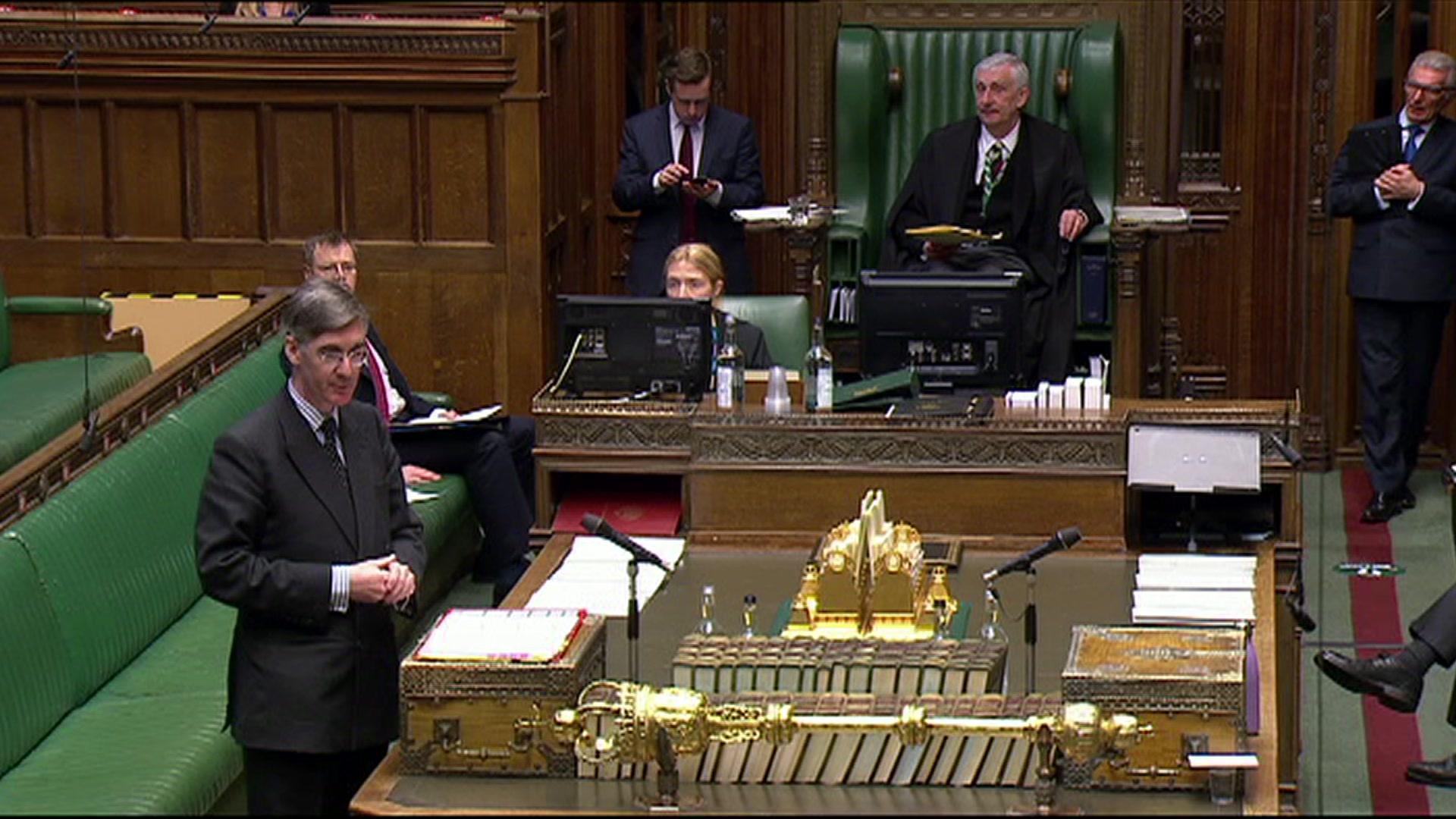The week ahead in Parliament
- Published
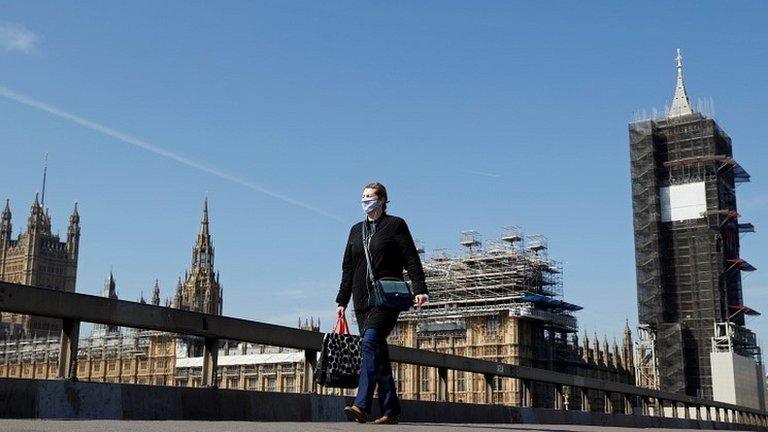
With the special bank holiday to mark the 75th anniversary of VE day on Friday, it's a truncated Westminster week.
And with the parties still seeking to avoid contested votes, until a remote voting system is perfected, the biggest events are likely to be ministerial statements and appearances at select committees - culminating in the likely return to PMQs of Boris Johnson, for his first direct confrontation with new Labour leader Sir Keir Starmer.
But watch out for the Commons' first debate on the Lockdown regulations on Monday - it will be just two hours, because it is a debate on a statutory instrument, a regulation made by ministers under powers in the Public Health Act. But it will still be a chance to discuss how the regulations are working and, maybe, to drop hints about how restrictions might be loosened.
In the Lords, it has been decided to establish a new committee to scrutinise the long-term implications of Covid-19, with a broad remit to look at the economic, societal and wider international implications of the virus, and conduct "cross-cutting" scrutiny of the government's response.
The Lords can supply experts across a whole range of professional backgrounds, so this could prove to be a formidable body. A motion to approve the new committee will go down soon.
Committee kerfuffle
Meanwhile the row over who should chair the Liaison Committee rumbles on. Liaison is the super-committee of select committee chairs and, since the days of Tony Blair, has had two evidence sessions a year with the prime minister. But it has not been formally established since the election, because of the kerfuffle over the government's attempt to install Sir Bernard Jenkin as the chair, even though he no longer chairs a committee himself.
Some select committee chairs are now seeking to block Sir Bernard's appointment by proposing an amendment to the motion, to allow the Liaison Committee to elect its own chair. That would force the government into a contested vote, if it went ahead - so either the whole process will be postponed, or the government will fold; I'd bet on the first.
This bit of inside baseball matters because the chair leads the questioning of the PM, and in the last parliament Tory-turned-Lib Dem Sarah Wollaston caused the government endless trouble, and ministers were not keen to see her replaced by someone (Jeremy Hunt? Tom Tugendhat?) who might do the same.
There will also be a bit of churn in committee-land, following the appointments to Sir Keir Starmer's shadow cabinet, with Rachel Reeves leaving the Business, Energy and Industrial Strategy (BEIS) Committee and Kate Green departing the Standards Committee.
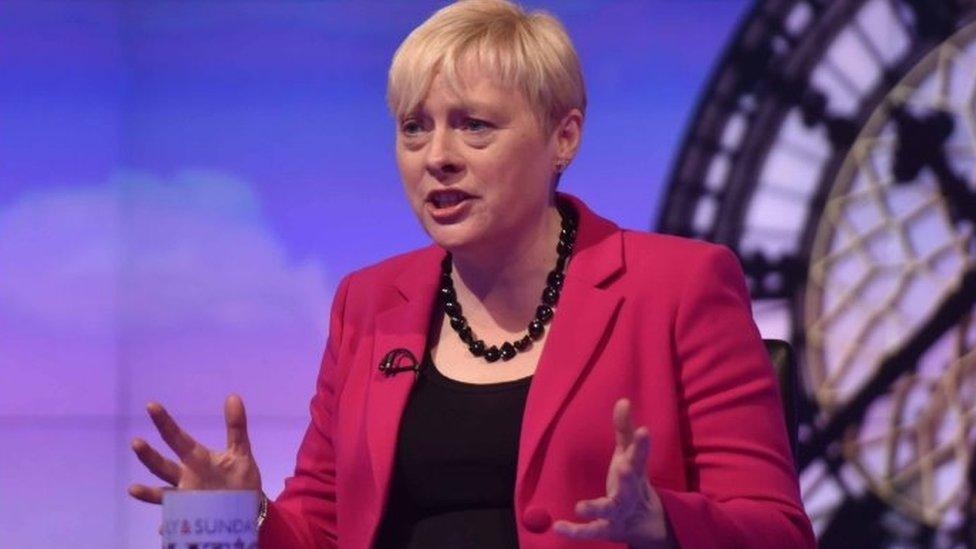
Angela Eagle is keen to monitor the business department
Under the carve-up of committees agreed between the parties, only Labour MPs are eligible to run for their two chairs. Nominations to replace them close on Monday, with elections on Wednesday.
Standards, the disciplinary committee for MPs, is normally chaired by an opposition backbencher with a decade-plus of Commons experience - so far the only runner is Chris Bryant, a former deputy leader of the House, while a lively contest is developing for the chair of BEIS, with Darren Jones, Stella Creasy and Angela Eagle all running.
Here's my rundown of the week ahead:
Monday 4 May
The Commons opens (14:30) with the now familiar double question time - first, half an hour of questions to Business, Energy and Industrial Strategy Secretary Alok Sharma, then half an hour of questions to the Chancellor of the Duchy of Lancaster and the Minister for the Cabinet Office, AKA Michael Gove.
Next comes a ministerial statement - an update from the Department for Work and Pensions, presumably from Secretary of State Thérèse Coffey, on Covid-19.
MPs then get their first chance to debate the restrictions imposed under the regulations which came into force on 26 March for the coronavirus lockdown, when they will be invited to give retrospective approval to the Health Protection (Coronavirus, Restrictions) (England) Regulation.
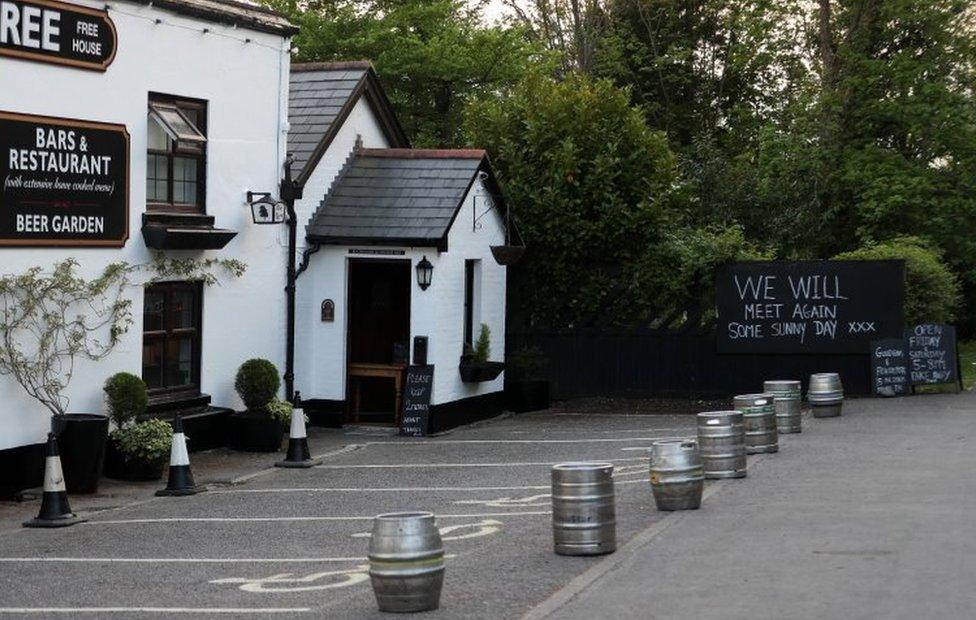
MPs will debate the closure of pubs and other venues
To recap, these require the closure of some businesses and restrictions on others, including the closure of bars, pubs, nightclubs and food and drink venues; cinemas, theatres, concert halls and bingo halls; museums and galleries; spas, hairdressing and massage parlours; casinos and betting shops; all indoor leisure and sports facilities, including gyms, playgrounds, funfairs, libraries and community centres; and non-food outdoor markets.
They prohibit people from leaving their home without reasonable excuse and ban public gatherings of more than two people, as well as providing for fines on those who break the restrictions. This is the first chance to debate the regulations, and the "clarificatory" amending regulations which were made last week, and which some observers believe amount to new law.
An interesting nerd point is that all this was the product of quite a rare legislative beastie, a Made Affirmative Statutory Instrument. That is an order under emergency procedures considered so urgent it can have legal force without approval via resolution of each House of Parliament. They're debated after the event. Before coronavirus the classic example was the 1993 Food Protection (Emergency Prohibitions) (Paralytic Shellfish Poisoning) (No.4) Order.
The Commons Procedure Committee's report last Tuesday recommended early and full debate on the original regulations - but despite their significance they only get the normal two hours' debate for an SI, and much of that could well be eaten up by frontbench speeches. There could well be criticism that the government could easily have scheduled a full day's debate.
At the end of the day there's a motion to set up the Scottish Affairs Select Committee - ending the dispute over its membership which saw the SNP resisting earlier attempts to set it up, because of an increase in the number of Conservative members. It's still not happy, but the word is it would rather see the committee up and running during the pandemic than continue a spat with the government over its precise make-up.
On the virtual Committee Corridor the Treasury Committee (09:00) takes evidence on the economic impact of coronavirus, with witnesses from the big banks - HSBC, Royal Bank of Scotland, Lloyds and Barclays - while the Justice Committee (09:15) hears from the Magistrates Association and the Law Society on the impact of the pandemic on the prison, probation and court systems.
In the afternoon, the Housing, Communities and Local Government Committee (14:00) hears from Secretary of State Robert Jenrick - questions are expected to focus on the effectiveness of support for local authorities facing significant financial burdens, the impact of Covid-19 on the social care sector, including provision of PPE for staff supporting vulnerable people.
It will also investigate the long-term strategy to support those currently relying on temporary eviction delays or housed in temporary accommodation.
The Lords will not be sitting.
Tuesday 5 May
Commons business begins (11:30) with questions to Education Secretary Gavin Williamson, followed (12:00) by questions to Health Secretary Matt Hancock.
Then MPs debate a couple of statutory instruments. First, the Greater Manchester Combined Authority (Fire and Rescue Functions) (Amendment) Order, which allows for the delegation of fire and rescue functions in Greater Manchester from the Mayor of the Greater Manchester Combined Authority to the Deputy Mayor for Policing and Crime, to improve collaboration between the Fire Service and other public bodies.
Then come the Employment Allowance (Increase of Maximum Amount) Regulations 2020, which increase the maximum amount of Employment Allowance from £3,000 to £4,000 - the aim is to support businesses wanting to expand their workforce.
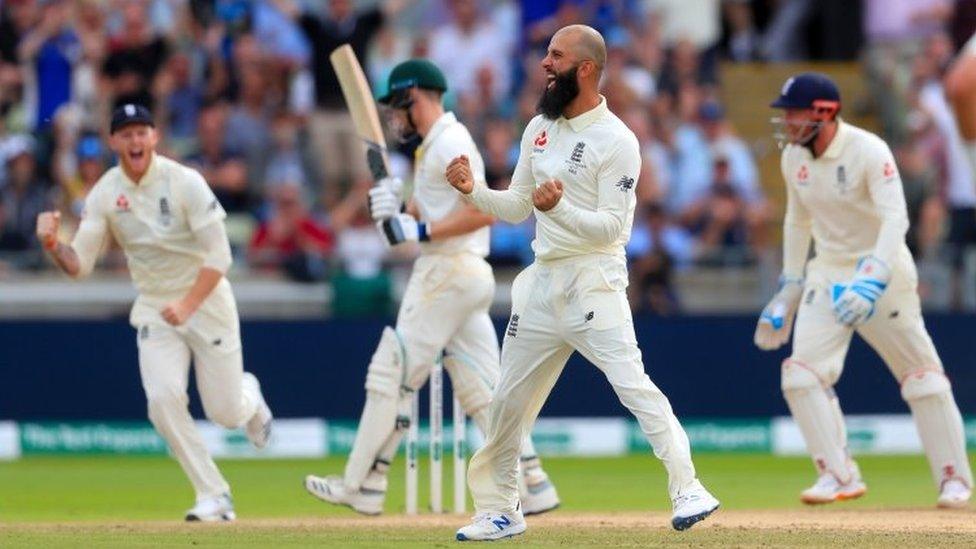
Cricket chiefs and other sports administrators will be quizzed by MPs
The day's select committee hearings include Health and Social Care (09:00) on the management of the coronavirus outbreak and Digital, Culture, Media and Sport (09:30) quizzing cricket, football and rugby chiefs on the impact of Covid-19 - they will discuss strategies for the future and the effect of on grassroots sports and participation.
Foreign Affairs (14:00) will focus on the Foreign Office's role in blocking foreign asset stripping in the UK and Environment, Food and Rural Affairs will be looking into Covid-19 and food supply (14:30). The session will focus on the impact of the closure of restaurants and food service businesses on food suppliers, how farmers and growers will find the seasonal labour they need this year, with witnesses from the National Farmers' Union, the Agriculture and Horticulture Development Board and the British Growers Association.
In the Lords (13:00) - expected to be broadcast on Zoom, after a deft switch of videoconferencing systems and a couple of rehearsals - questions to ministers range across inconsistencies between Covid-19-related guidance and legislation, and the impact of these on police interactions with the public.
The main debate is on a motion required under Section 5 of the European Communities (Amendment) Act 1993, taking note of the government's assessment of the medium-term economic and fiscal position as set out in the latest Budget - which could be lively given subsequent economic developments.
Then peers consider the regulations also debated in the Commons - the Employment Allowance (Increase of Maximum Amount) Regulations 2020 and the Greater Manchester Combined Authority (Fire and Rescue Functions) (Amendment) Order 2020,
And the Lords European Union Committee (13:30) quizzes the near-omnipresent Michael Gove about the progress of UK-EU future relationship negotiations.
Wednesday 6 May
MPs begin (11.30) with questions to Women and Equalities Minister Elizabeth Truss, followed, at 12:00, by questions to the prime minister, with Boris Johnson expected to return after illness and fatherhood.
The main debate is on another SI, the Census (England and Wales) Order 2020, which underpins plans to make the 2021 census the most inclusive to date, conducted predominantly online but with the option of paper forms available. Aside from questions on religion, sexual orientation and gender identity, refusal to answer census questions, or providing false answers will be a criminal offence.
The day's committee hearings include Transport looking at the implications of coronavirus (09:30), including on the finances of airlines and airports, refunds and quarantine periods and how air travel will work as the restrictions are eased. Witnesses include John Holland-Kaye, chief executive of Heathrow Airport; Simon Calder, senior travel editor of the Independent; and Mark Tanzer, chief executive of ABTA (the Association of British Travel Agents).
In the afternoon, Women and Equalities (14:30) takes evidence on how the coronavirus has an impact on people with protected characteristics.
In the Lords (13:00) questions to ministers cover social distancing in the National Asylum Support Service, and protection of the privacy of users of the NHS Covid-19 contact-tracing app.
Then the Archbishop of York, the Rt Rev John Sentamu, leads a debate on the case for increasing income equality and sustainability in the light of the health emergency. And that is followed by a debate on the Windrush Compensation Scheme.
- Published2 April 2020
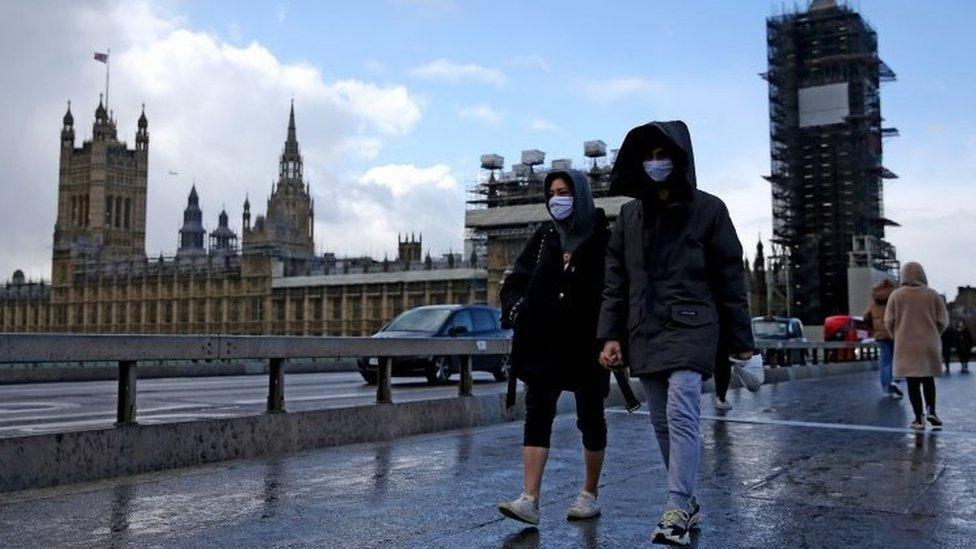
- Published21 April 2020
